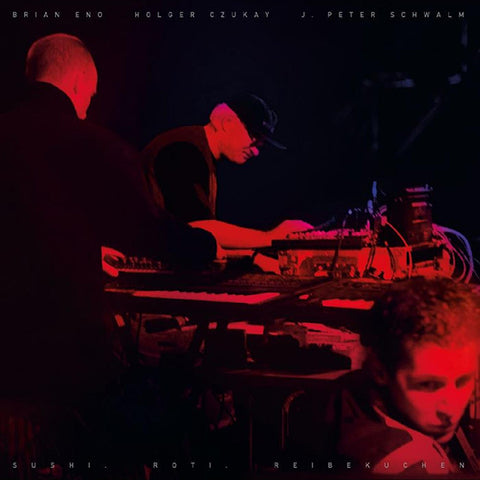Neu! - s/t LP
$20.98
Label: Groenland
Fresh after leaving Kraftwerk in the fall of 1971 for what they perceived to be a lack of vision, guitarist Michael Rother and drummer Klaus Dinger formed their own unit and changed the face of German rock forever. Neu! created a sound that was literally made for cruising in an automobile. While here in the States people were flipping out over "Radar Love" by Golden Earring, if they'd known about this first Neu! disc, they would never have bothered. Dinger's mechanical, cut time drumming and Rother's two-note bass runs adorned with cleverly manipulated and dreamy guitar riffs and fills were the hallmarks of the "motorik" sound that would become the band's trademark.
On "Hallogallo," which opens the disc, the listener encounters a timeless rock & roll sound world. The driving guitar playing one chord in different cadences and rhythmic patters, the four-snare to the floor pulse with a high hat and bass drum for ballast, and a bassline that is used more for keeping the drummer on time than as a rhythm instrument in its own right. These are draped in Rother's liquidy, cascading single note drones and runs, so even as the tune's momentum propels the listener into a movement oriented robotic dance, the guitar's lyrical economy brings an aesthetic beauty into the mix that opens the space up from inside. The tense ambient soundscape of "Sonderangebot" balances things a bit before the slower-than-Neil Young "Weissensee" opens with a subtle industrial clamor and opens up into a lyrical exploration of distorted slide guitar aesthetics with an uncharacteristic drum elegance that keeps the guitar in check. "Im Glí_ck" tracks a restrained, droning path through the textural palette of the guitar, treated with whispering distortion and echo. All hell breaks loose again on Dinger's "Negativland" as an industrial soundscape eventually gives way to a bass and guitar squall as darkly enticing as anything on Joy Division's Unknown Pleasures.
Rother's style had as much to do with not playing as it did with virtuosity, and his fills of open chords, stuttered cadences, and broken syntax provided a much needed diversion for the metronymic regularity of the rhythm section. Rother didn't riff; he painted a mix with whatever was necessary to get the point across. His mannerisms here are not to draw attention to himself, but rather to that numbing, incessant rhythm provided wondrously by Dinger. Neu!'s debut album was driving music for the apocalypse in 1971.





